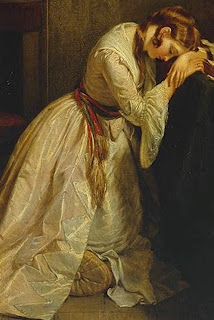This blog is a thinking activity assigned by Vaidehi Ma’am. It is based on the novel of Samuel Richardson “Pamela”. It is an Epistolary novel, written in 1740.
“Pamela” tells the story of a fifteen-year-old maidservant named Pamela Andrews, whose employer, Mr. B, a wealthy landowner, makes unwanted and inappropriate advances towards her after the death of his mother. Pamela strives to reconcile her strong religious training with her desire for the approval of her employer in a series of letters and, later in the novel, journal entries all addressed to her impoverished parents. After various unsuccessful attempts at seduction, a series of sexual assaults and an extended period of kidnapping, the rakish Mr. B eventually reforms and makes Pamela a sincere proposal of marriage. In the novel's second part, Pamela marries Mr. B and tries to acclimatise to her new position in upper-class society.
You can watch the summary of the novel here:-
In this blog I shall explore If Pamela was in the contemporary time, what changes would take place.
If Pamela existed in contemporary times, the story's landscape would undergo profound changes. One of the most apparent alterations would be in the novel's style. With the advancement of modern communication methods, Pamela would no longer need to write letters, transforming the novel from an epistolary format to something more in line with today's instant messaging and digital communication. This shift alone would reshape the narrative structure, allowing for faster and more dynamic exchanges of information.
Pamela's ability to communicate with her parents would also see a dramatic improvement. Instead of relying on letters and the uncertainties of postal services, she could now send messages instantly, assuring her parents of her safety and possibly preventing many of the troubles she encountered, including her traumatic kidnapping and imprisonment. Moreover, the contemporary legal system would offer Pamela's parents the means to take decisive actions against Mr. B. Strict rules and regulations would hold wrongdoers accountable, potentially leading to legal consequences for Mr. B and acting as a deterrent against his reprehensible behaviour. Society's changed attitudes towards such actions would ensure that Mr. B's behaviour was seen as sexual harassment rather than a product of his time, leading to public outrage and potentially subjecting him to cancel culture.
Pamela's character would undergo a profound transformation as well. In the original novel, she was a servant girl with limited social status and financial stability, which forced her to endure Mr. B's inappropriate advances. In contemporary times, however, Pamela would have far more options at her disposal. She could readily involve the police, seek help from support organisations, or simply choose to leave her job and find alternative employment. It is also possible, that Pamela would not have been working at all, but getting an education. Pamela's personality would also evolve to fit the modern context. No longer expected to be meek and submissive, contemporary women are more likely to be assertive and outspoken. Pamela might assert herself more firmly and challenge Mr. B's behaviour, or she might choose to walk away from the relationship if he failed to treat her with respect.
Unlike in the novel, where Pamela had few friends or family members to turn to for support, in contemporary times, she would likely have a close-knit circle of friends who could provide emotional and practical support during her ordeal. Access to resources like hotlines and counselling services would further bolster her resilience and help her cope with the trauma. Pamela's story, in the age of social media and digital connectivity, would have the potential to be widely shared and discussed. Her experiences could become the subject of news articles, blogs, documentaries, and even books and movies. This increased visibility would not only draw attention to the pervasive issue of sexual harassment and assault but also inspire and empower other women to stand up for themselves and seek justice.
In conclusion, the transformation of Pamela's story in contemporary times would be profound, touching upon changes in communication, legal systems, societal norms, personal choices, and support networks. These shifts would collectively alter the narrative, the characters, and the impact of Pamela's tale in a modern context.





Comments
Post a Comment